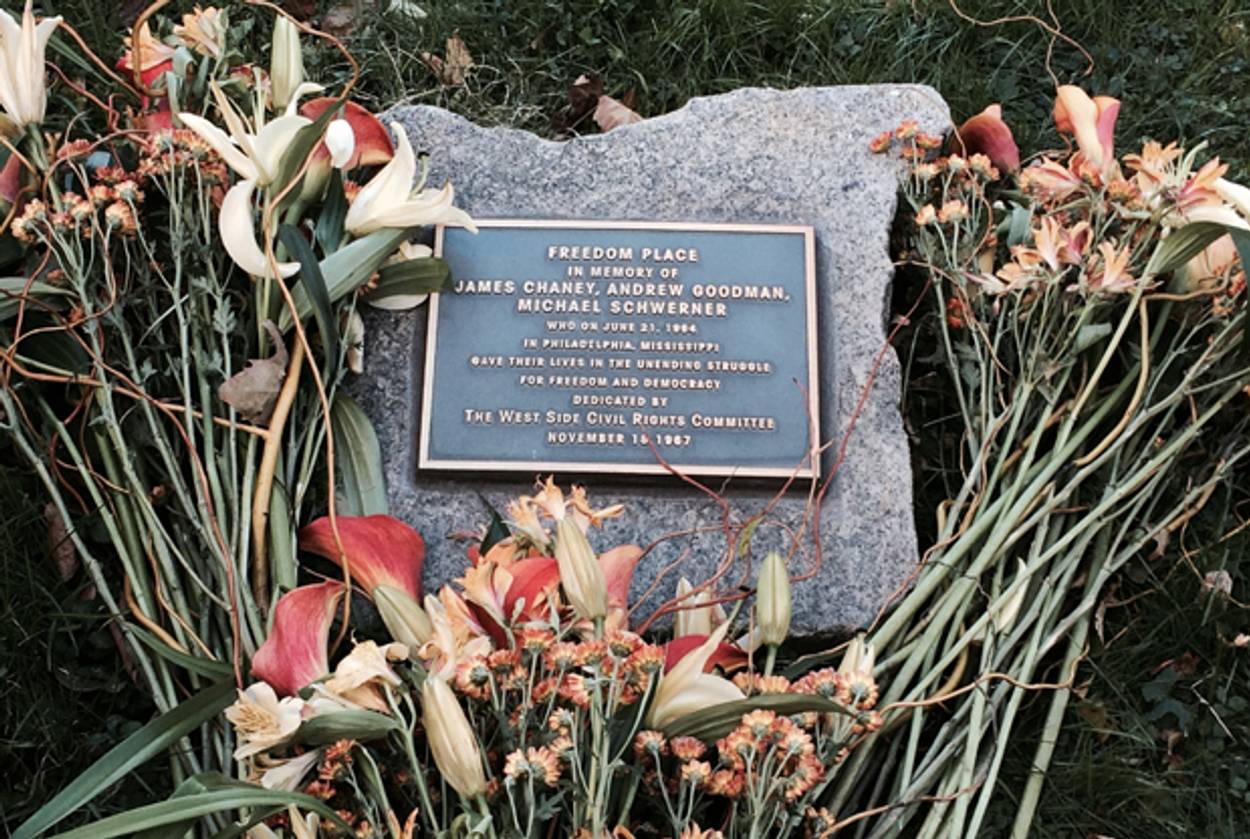Honoring Jewish Civil Rights Workers in NYC
On a city block named for three activists killed during Freedom Summer




Near my home on the Upper West Side of Manhattan runs a sleepy avenue, just four blocks long, called Freedom Place. The street was named in memory of James Chaney, Andrew Goodman, and Michael Schwerner, who were murdered in Mississippi in the summer of 1964 while attempting to register African-American voters. This year marks the 50th anniversary of their deaths, and of their project, which came to be known as Freedom Summer.
Last Sunday, a coalition of black and Jewish groups, organized by the Lincoln Square Synagogue, held a commemoration of those events and a memorial to the three young men, one black and two white, who lost their lives, but whose deaths were a catalyst for the growth of the civil rights movement, and the passage, one year later, of the federal Voting Rights Act. Nearly 300 people were addressed by Reverend Julia Moss, sister of James Chaney; Steven Schwerner, brother of Michael Schwerner; and David Goodman, brother of Andrew Goodman; as well as Congressmen Jerrold Nadler and Charles Rangel and leaders of the Baptist and Jewish clergy.
The Reverend Jaques DeGraff, of the Canaan Baptist Church, roused the audience with his studied cadences as he thanked the Jewish community “for what they did 50 years ago in standing with us.” He made reference to the story of Shadrach, Meshach, and Abednego in the biblical Book of Daniel, telling the crowd: “We know the story of three boys—three Hebrew boys—who stood in a fiery furnace. In America, in 1964, it was a fiery furnace.”
Following the somber reminiscences and exhortations to continue the work of the three martyrs, the participants marched the short distance from Lincoln Square Synagogue to Freedom Place where three wreaths were laid on the avenue’s memorial plaque.
Previous: Martin Luther King Jr. and the Jews of Atlanta
Related: Remembering Civil Rights Leader Joachim Prinz
In 1964, the Civil Rights Act Was Still a Dream. Then These Jewish Operatives Got to Work.
Morton Landowne is the executive director of Nextbook Inc.